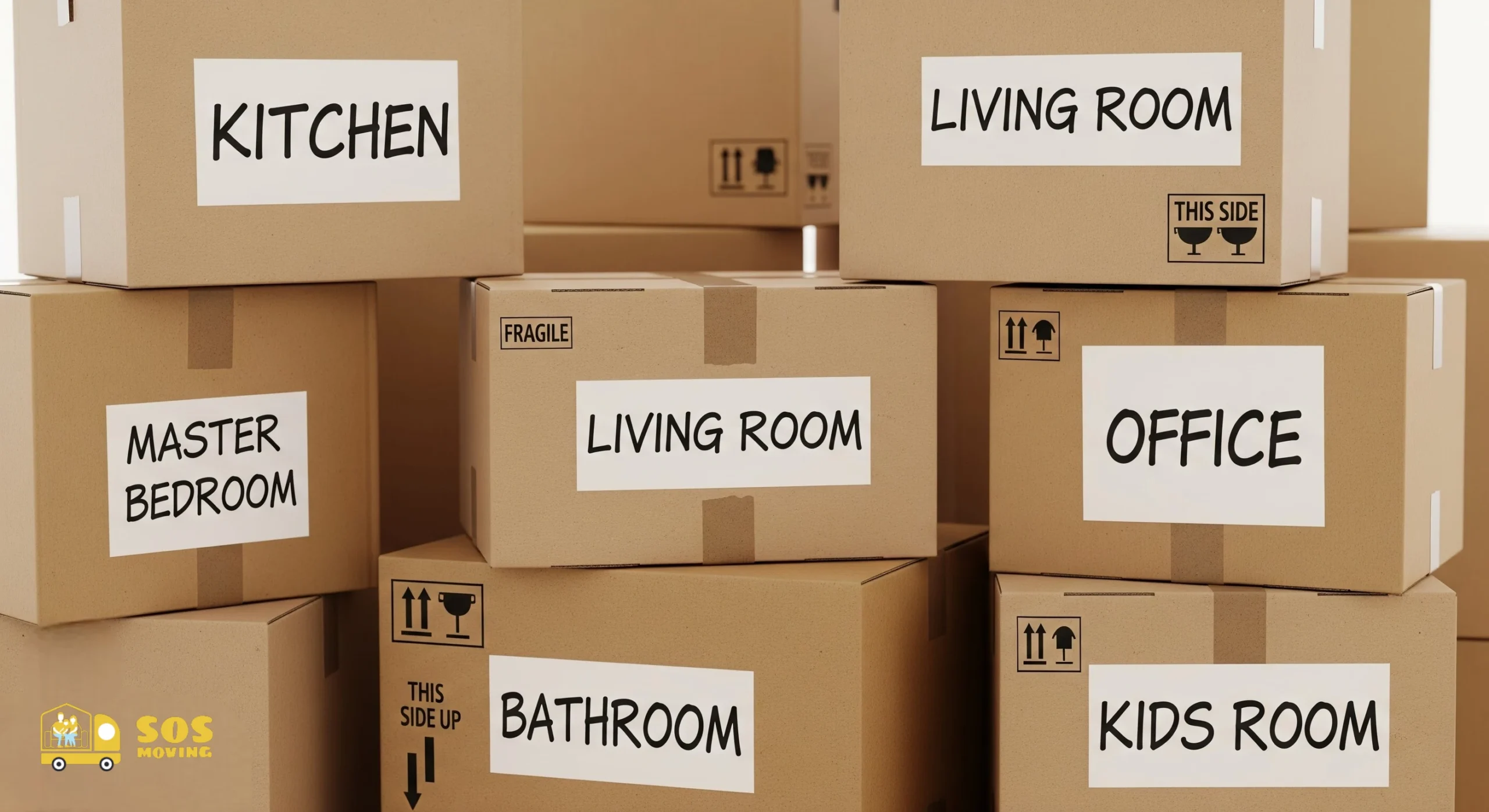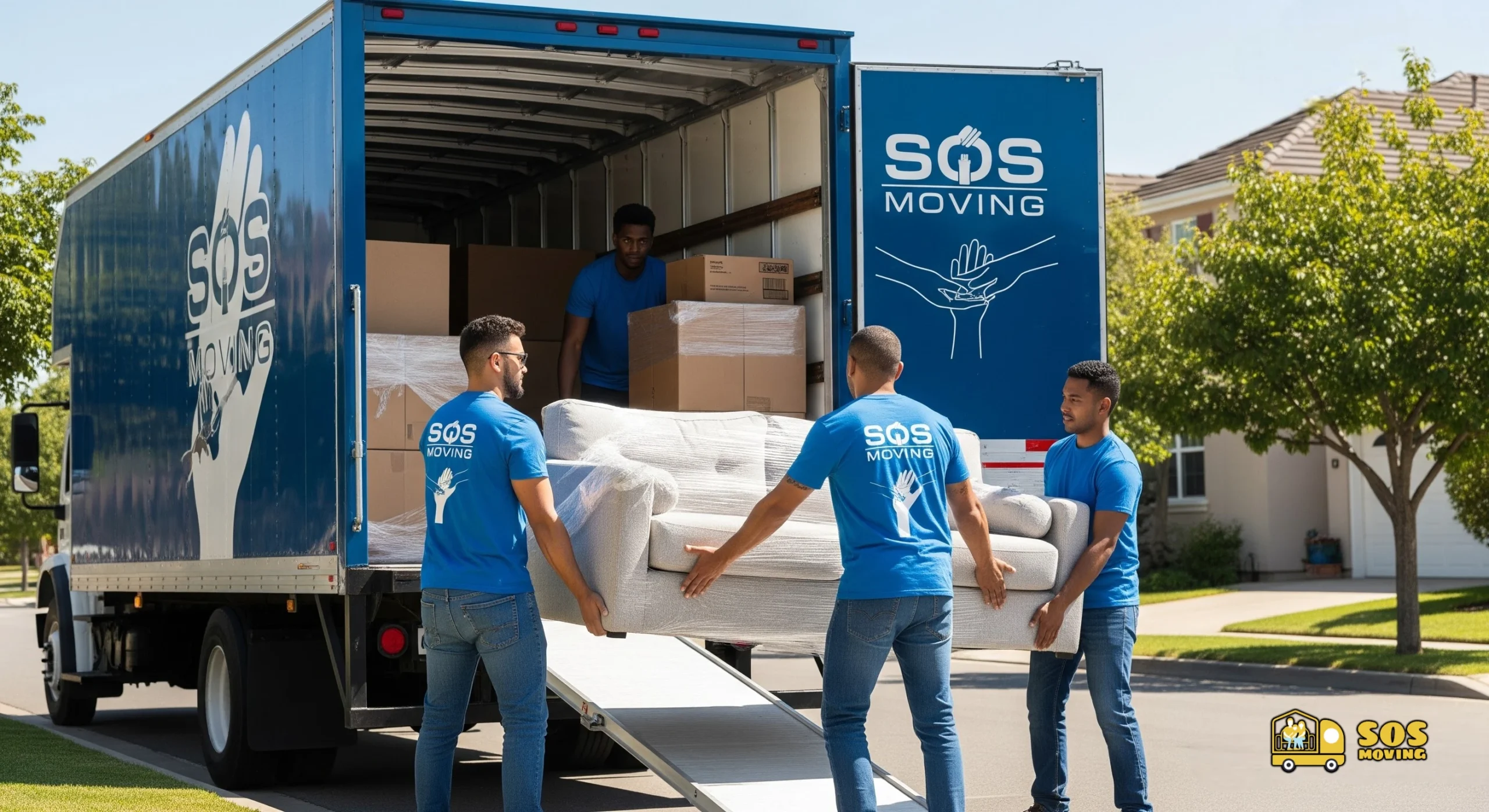Moving to a new city can feel like an adventure and a leap of faith at the same time.
You’re boxing up your life, betting on a new chapter, and wondering how it’ll all shake out. Will you like your place? Will the neighborhood fit your routines? Those nerves are normal and they’re easier to handle when you know what’s coming, including the real-world costs.
For context, local moves often run a few hundred to a few thousand dollars, and long-distance moves can land well into the four figures, so budgeting early helps you steer the process instead of the process steering you.

Leaving Your Old Place
Saying goodbye is usually the hardest part. It isn’t just furniture and boxes, you’re leaving your morning coffee spot, your favorite walking route, and the streets you could drive on autopilot. Let yourself feel that. Then give future-you a hand: close the loop on your lease terms, line up utilities shut-offs, and make a short list of what you want your next daily life to look like (parks, commute, gyms, cafés). If money’s tight, it’s worth checking whether your state or city offers any relocation assistance or fee relief so you’re not carrying all of the move on your own.
Planning Makes It Easier
A solid plan takes so much of the stress out of moving. Start early, ideally a few weeks before your move date and make a short, practical list of what needs to happen and when. Add packing, cleaning, canceling utilities, and updating your address. Break those big items into bite-size steps so the whole thing doesn’t feel overwhelming. When you check each one off, it gives you a sense of progress and control and that calm feeling you really need during a move.
You can even use your phone’s reminder app or a moving checklist app to stay on track. The small effort upfront saves you hours of chaos later.
Packing Step by Step

Packing doesn’t have to be a marathon. Start with the stuff you rarely touch, like books, décor, and seasonal clothes, and work your way toward the things you use daily. Use sturdy boxes, strong packing tape, and bubble wrap or towels to keep fragile items safe. Write what’s inside and which room it belongs to on each box; that tiny extra detail makes unpacking way easier.
If you give yourself enough time, you’ll pack at a comfortable pace instead of rushing the night before. A little order now means a smoother landing when you get to your new place.
Letting Go of Old Things
A move is the perfect excuse to lighten your load. As you pack, go room by room and ask yourself what still earns a place in your life. If something’s broken, worn out, or no longer fits your style, it’s time to let it go. You can donate gently used clothes or furniture to a local charity, pass extras to friends, or post them online for free pickup. You’ll be surprised how freeing it feels to keep only what you actually want in your new space. Plus, less clutter means fewer boxes to move and more room to breathe once you arrive.
When you’re on the fence about an item, picture it in your new home. If you can’t see where it fits or you wouldn’t miss it, thank it for the memories and move on. It’s not just decluttering; it’s resetting your environment so your next chapter starts fresh.
Thinking About the Journey
The trip to your new city can be its own adventure. Whether you’re driving a few hours or flying across the country, plan the journey so it’s as smooth as possible. If you’re hauling everything yourself, double-check that your car or rental truck is ready for the distance (tires, brakes, and fluids included). For long moves, like moving from Dallas to Los Angeles, professional long-distance movers can be worth every penny for the peace of mind they bring. Many offer tracking so you know exactly where your stuff is on the road.
If the distance feels overwhelming, don’t try to handle it all alone. Ask friends to ride along, or use a service that pairs you with reliable helpers on both ends. A bit of support can turn a stressful trip into something almost enjoyable. Think of it as the bridge between who you were in your old place and who you’ll become in your new one.
The First Day in Your New Home

That first day in a new home always feels a little strange. The space is quiet, the walls echo, and everything feels unfamiliar. Give yourself permission to take it slow. Start by setting up the basics so you can rest and eat comfortably. Make your bed, plug in a few lamps, and unpack your kitchen essentials like plates, cups, and a coffee maker.
Once you have a place to sleep and something warm to eat, everything else will fall into place more easily. Open a window, play some music, or light a candle. Those little touches can make the space feel like yours right away.
Exploring the New City
After you’ve settled in a bit, step outside and just see where your feet take you. No schedule, no checklist. Walk around the block, look at the houses, notice what kind of trees line the streets. You might pass a coffee shop that smells amazing or a park where kids are playing. Go in, grab a drink, sit for a minute, and just watch.
Pay attention to the little things, like the way people talk, how fast they walk, the feel of the place. Every city has its own vibe, and the only way to really get it is to spend time out there. Don’t push yourself to learn it all at once. Let it come to you. One day you’ll realize you already have a favorite corner, a go-to store, maybe even someone who nods hello when you pass by. That’s when it starts feeling like you belong.
Meeting New People
Making friends in a new city takes time, and that’s completely normal. Start with the people around you. Say hi to your neighbors when you see them outside. Talk a little with the folks at your local coffee shop or grocery store. You don’t need to force it, just be open.
If you like group stuff, look for a class or club that matches what you’re into. Join a gym, take a pottery class, or show up at a weekend market. When you keep showing up in the same places, faces start to become familiar. Before you know it, those quick hellos turn into real conversations. That’s how a city that once felt new starts feeling like home.
Keeping in Touch with Old Friends

You’re going to miss your old friends, and that’s okay. Call or text when you feel lonely. Send a photo of your new place or the view from your window. Ask how they’re doing and tell them a little about your day.
You don’t have to talk all the time to stay close. A simple check-in here and there keeps that bond alive. Hearing a familiar voice or laughing about an old memory can make you feel grounded, even when you’re miles away.
Dealing With Homesickness
Feeling homesick is completely normal after a move. Some days it just hits you, even if everything seems fine. When that happens, don’t fight it. Let yourself feel it and take it slow.
Try to make your new space feel like you. Put up photos of people you care about, play music you love, light a candle that smells familiar. Cook one of your favorite meals, the kind that reminds you of home. Those little things can make a big difference. Over time, the sadness won’t show up as often, and your new place will start to feel a little more comfortable each day.
Building a New Routine
Once you’ve unpacked and things start to calm down, try to build a simple rhythm to your days. Wake up at the same time, take a walk, grab coffee, and plan what you want to get done. Visit the same grocery store or café a few times, that’s how familiar faces start to appear.
Small habits give your days shape and make your surroundings feel less temporary. Before long, you’ll notice you have a favorite route to walk, a spot you like to sit in, and maybe even a barista who knows your order. That’s when you’ll realize your new city isn’t just where you live, it’s starting to feel like home.
Handling the Big Stuff

When you’ve got a big move with heavy furniture or way too many boxes, don’t try to be a hero. Moving everything by yourself can wear you out fast. It’s completely fine to get help. If you’re relocating to or from Los Angeles, look for long-distance movers who charge fair prices and actually know how to lift and load things the right way. They do this every day, so they know how to keep your stuff safe.
Once you let someone else handle the heavy parts, you can breathe a little. You’ll have more energy to focus on settling in and figuring out your new life.
Enjoying the Change
Change can feel weird, but it can also be pretty great once you lean into it. Every city has its own look and feel, like the smells from local food stands, the way people talk, the sounds from the streets. Try the food, visit a park or a small museum, walk through the weekend market. Let yourself get lost for a bit.
You don’t have to love everything right away. Just notice what catches your eye or makes you smile. Over time, those small moments start to add up. One day you’ll realize you’re not just visiting anymore, you’re part of the place.
Giving Yourself Time
It takes a while to feel like you belong somewhere new. Some days you’ll wake up feeling great about your decision, and other days you’ll really miss your old life. That’s normal. Go easy on yourself. You don’t have to have everything figured out right away. Make your place cozy, get outside for fresh air, and do small things that help you feel grounded. With time, what feels unfamiliar now will start to feel like it’s yours. One morning, it’ll hit you that you’ve stopped comparing this place to where you came from, you just live here now.
Looking Back Proudly
At some point, you’ll think about where you started. The packing, the long trip, that first quiet night surrounded by boxes. You’ll see how much you’ve grown since then. Moving takes courage. You left what was comfortable and started from scratch, and not everyone can do that. You built something new, one small day at a time. That’s something to feel proud of.
After a while, things just start to feel different. The city doesn’t seem so big anymore. You stop checking maps every time you go out. You recognize the sound of the traffic outside your window. You know where to get a good sandwich and which store stays open late. And somewhere in all of that, it hits you. This isn’t just the place you moved to. This is where you live now.
And maybe that’s the best part of starting fresh. You find out how strong you are, how much you can adapt, and how a strange place can turn into home just because you gave it time.